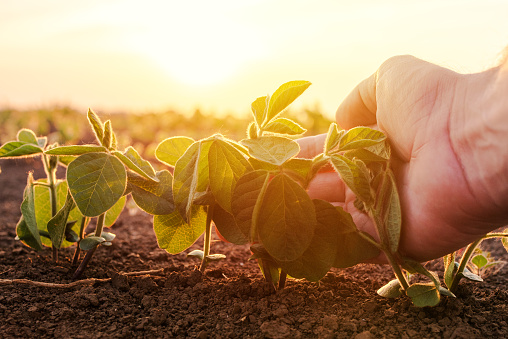Introduction:
Agriculture is an essential activity for the survival of humans and animals, as it provides food, fiber, and other raw materials. However, the impact of agriculture on our planet is not always positive. This blog post highlights the important points about the impact of agriculture on our planet, including the pros and cons.
Agriculture is the backbone of human civilization, providing the necessary resources for our survival. It has been the primary source of food, fiber, and other essential raw materials for thousands of years. However, the impact of agriculture on our planet is not always positive. With the growing population, there is an increasing demand for food, leading to intensified farming practices that have significant environmental consequences. This blog post highlights the important points about the impact of agriculture on our planet, including the pros and cons. It is essential to recognize the challenges that agriculture poses and to implement sustainable practices to mitigate its negative impact on the environment.
Important Points:
- Agriculture is responsible for about 30% of global greenhouse gas emissions. These emissions come from activities such as deforestation, livestock production, and the use of fossil fuels in agriculture.
- Agriculture is the main cause of deforestation, which leads to the loss of biodiversity and contributes to climate change. Deforestation also causes soil erosion and landslides, which can have a devastating impact on the environment.
- Modern agriculture practices rely heavily on chemical fertilizers and pesticides, which can have harmful effects on the environment and human health. These chemicals can contaminate soil and water, causing long-term damage to ecosystems.
- Agriculture is also a major consumer of water, accounting for about 70% of global freshwater use. Water scarcity is a growing problem around the world, and agriculture is one of the main contributors to this issue.
FAQ’s:
1.How does agriculture impact climate change?
A: Agriculture contributes to climate change through activities such as deforestation, livestock production, and the use of fossil fuels in agriculture. These activities release greenhouse gases into the atmosphere, contributing to global warming.
2.What is the impact of modern agriculture practices on the environment?
A: Modern agriculture practices rely heavily on chemical fertilizers and pesticides, which can have harmful effects on the environment and human health. These chemicals can contaminate soil and water, causing long-term damage to ecosystems.
3.How does agriculture impact water resources?
A:Agriculture is a major consumer of water, accounting for about 70% of global freshwater use. Water scarcity is a growing problem around the world, and agriculture is one of the main contributors to this issue.
Pros:
- Agriculture provides food and other essential raw materials for humans and animals.
- Agriculture can help to reduce poverty and improve food security in developing countries.
- Agriculture can provide job opportunities for people living in rural areas.
Cons:
- Agriculture is responsible for a significant amount of greenhouse gas emissions and contributes to climate change.
- Agriculture is the main cause of deforestation, leading to the loss of biodiversity and contributing to climate change.
- Modern agriculture practices rely heavily on chemical fertilizers and pesticides, which can have harmful effects on the environment and human health.
Final Conclusion:
In conclusion, agriculture is an essential activity for the survival of humans and animals, but it has a significant impact on our planet. Agriculture is responsible for a significant amount of greenhouse gas emissions, contributes to climate change, and is the main cause of deforestation. Modern agriculture practices can also have harmful effects on the environment and human health. It is essential to adopt sustainable agriculture practices that reduce the negative impact of agriculture on our planet.
Agriculture is crucial for human and animal survival, but it also has a significant impact on the planet. The negative consequences of agriculture, such as greenhouse gas emissions, deforestation, water depletion, and soil degradation, are increasingly becoming a concern for our planet’s sustainability. However, there are many ways to mitigate the negative impact of agriculture, such as adopting sustainable farming practices, reducing food waste, and promoting local and organic food production. It is important to recognize the challenges that agriculture poses and to work towards a sustainable future where agriculture can continue to provide the necessary resources for our survival while preserving the planet’s health and well-being. We must work together to ensure that our agriculture practices are sustainable, environmentally friendly, and socially responsible. Only then can we ensure a healthy and thriving planet for generations to come.


